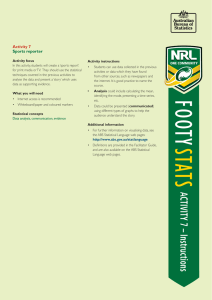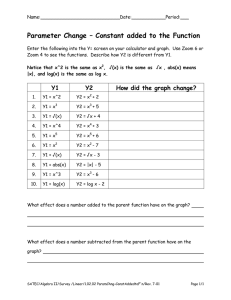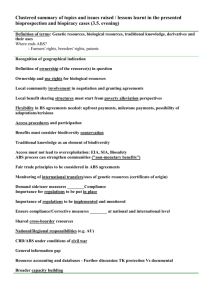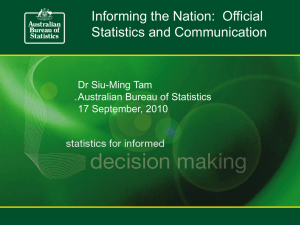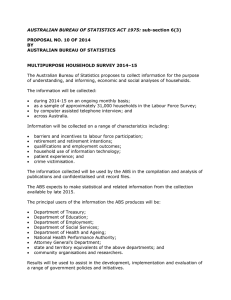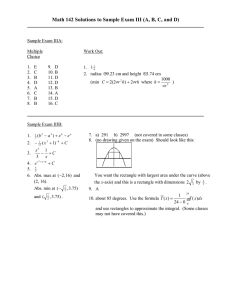Voorburg Group 2015 – Poster Session:
advertisement
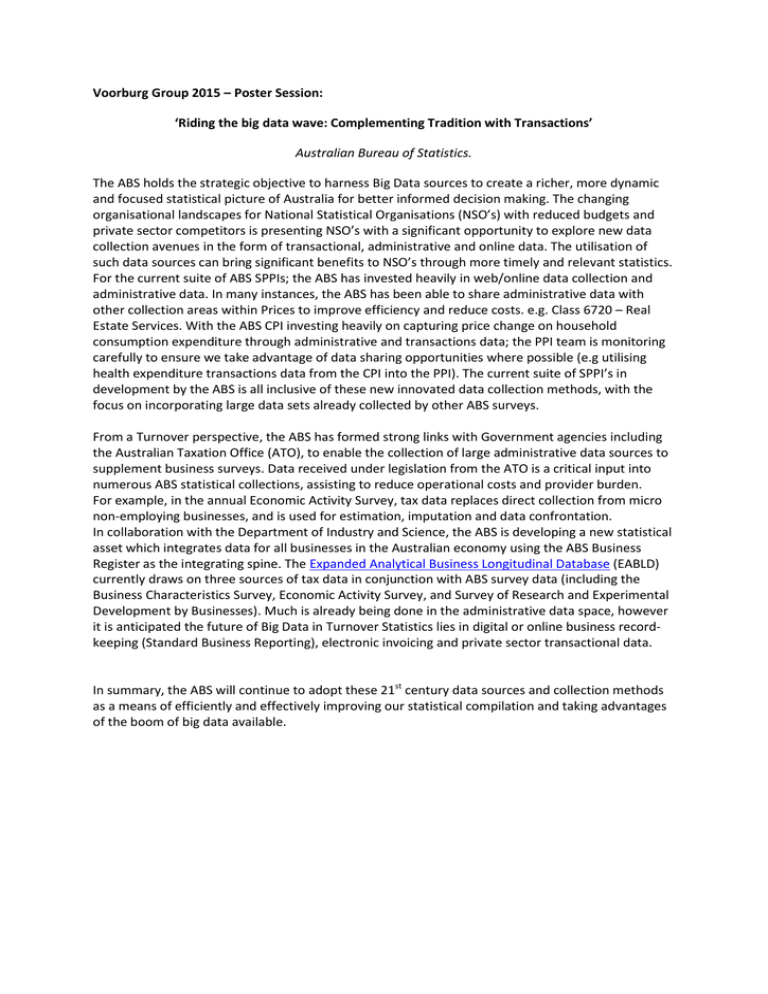
Voorburg Group 2015 – Poster Session: ‘Riding the big data wave: Complementing Tradition with Transactions’ Australian Bureau of Statistics. The ABS holds the strategic objective to harness Big Data sources to create a richer, more dynamic and focused statistical picture of Australia for better informed decision making. The changing organisational landscapes for National Statistical Organisations (NSO’s) with reduced budgets and private sector competitors is presenting NSO’s with a significant opportunity to explore new data collection avenues in the form of transactional, administrative and online data. The utilisation of such data sources can bring significant benefits to NSO’s through more timely and relevant statistics. For the current suite of ABS SPPIs; the ABS has invested heavily in web/online data collection and administrative data. In many instances, the ABS has been able to share administrative data with other collection areas within Prices to improve efficiency and reduce costs. e.g. Class 6720 – Real Estate Services. With the ABS CPI investing heavily on capturing price change on household consumption expenditure through administrative and transactions data; the PPI team is monitoring carefully to ensure we take advantage of data sharing opportunities where possible (e.g utilising health expenditure transactions data from the CPI into the PPI). The current suite of SPPI’s in development by the ABS is all inclusive of these new innovated data collection methods, with the focus on incorporating large data sets already collected by other ABS surveys. From a Turnover perspective, the ABS has formed strong links with Government agencies including the Australian Taxation Office (ATO), to enable the collection of large administrative data sources to supplement business surveys. Data received under legislation from the ATO is a critical input into numerous ABS statistical collections, assisting to reduce operational costs and provider burden. For example, in the annual Economic Activity Survey, tax data replaces direct collection from micro non-employing businesses, and is used for estimation, imputation and data confrontation. In collaboration with the Department of Industry and Science, the ABS is developing a new statistical asset which integrates data for all businesses in the Australian economy using the ABS Business Register as the integrating spine. The Expanded Analytical Business Longitudinal Database (EABLD) currently draws on three sources of tax data in conjunction with ABS survey data (including the Business Characteristics Survey, Economic Activity Survey, and Survey of Research and Experimental Development by Businesses). Much is already being done in the administrative data space, however it is anticipated the future of Big Data in Turnover Statistics lies in digital or online business recordkeeping (Standard Business Reporting), electronic invoicing and private sector transactional data. In summary, the ABS will continue to adopt these 21st century data sources and collection methods as a means of efficiently and effectively improving our statistical compilation and taking advantages of the boom of big data available.
